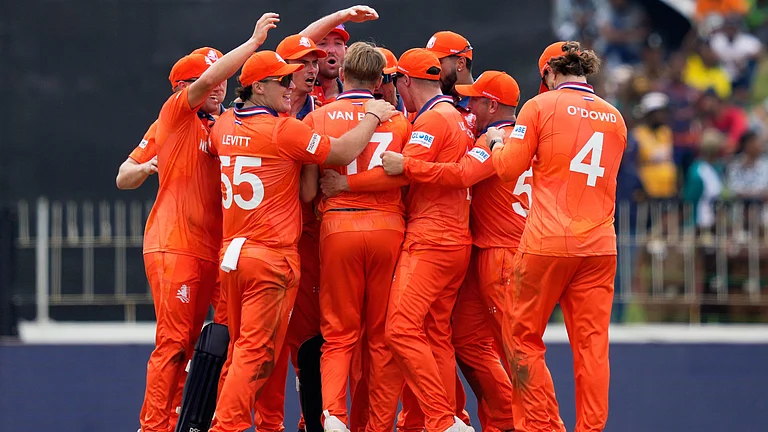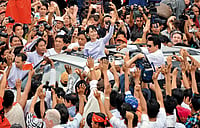In politics, morale is more important han numbers. And as of now, the morale of the Manmohan Singh government has sunk abysmally low even though it has all the numbers that are needed. The debacle in the assembly polls had already sucked the life-force out of the Congress. Then, Mamata Banerjee drew blood on the rail budget and reduced the UPA government to a farce. Earlier, the PM had made a phone call to Mamata, urging her not to attend the swearing-in of Prakash Singh Badal. Trouble is also brewing with another ally—the DMK, which has sharpened its attack on the government for its attitude to human rights violations during Sri Lanka’s war against the LTTE.
In Uttarakhand, forget the Congress’s internal troubles, it took the BSP five full days to extend support to it—something that should have happened the day the results came out. After all, the BSP extends outside support to the UPA at the Centre. In Delhi, the Congress is unsure whether Mulayam Singh Yadav’s Samajwadi Party, or the BSP for that matter, are with it or not. BJP president Nitin Gadkari, not particularly known for his wit, was perceptive when he observed that the only reliable ally the Congress has today is the CBI.
No wonder then, the impression going around is that the UPA is unravelling. There are a number of political hoops the party has to jump through, ranging from the presidential and vice-presidential elections to a string of vital assembly polls, right up to the next general election. This would require keeping its alliances intact as well as forging new friendships.
However, across the states, a new political ganging-up is taking place against the Congress. The issue of federalism—which has been debated since Independence—has become a potent tool for barracking the government it leads. The interests of several regional leaders have also coalesced to promote an anti-Congress climate.
It is in Mamata’s long-term interest, for example, to part ways with the Congress. She does not want a revival of the Congress in West Bengal and sees clear advantages in a direct contest with the Left. So she will use every opportunity to cut the Congress to size till she eventually dumps it.
Even before her antics on the railway budget threw the government in a tizzy, she had hounded Congress nominee Manoj Chakrabarty from her cabinet by paring down his portfolio (an angry Congress has refused to nominate anyone else in his place), provoked the party further by daring to rename Indira Bhavan as Nazrul Bhavan, and continuously courted rebel Congress leaders in the state.
She scuttled the Teesta accord, the introduction of the Land Acquisition Bill, and now, she has sided with anti-Congress parties to take up the issues of National Counter-Terrorism Centre and the Railway Protection Force Act, claiming that they curtail the rights of the states. However, she would not want to be responsible for bringing down the UPA government for fear of alienating the large Muslim population of Bengal. Instead, she will keep needling it—carefully calibrating her actions till the general election. At that point, she may well jettison the alliance.
Naveen Patnaik also has reason to be anti-Congress. The Congress is the main political opponent of the BJD in Orissa. The talk of a ‘federal front’ offers a plank by which to gather forces and deny the Congress any breathing space. Jayalalitha’s politics is tactically more flexible. She will talk of federalism, but she will have no problems aligning with a UPA-III, the NDA or even a Third Front.
In Bihar, Nitish Kumar continues to swear by the NDA, but many see him as a prime ministerial candidate. He will have to be with the NDA or any other anti-Congress front that might take shape in future. And if Nitish can hope to be PM, then why should Mulayam Singh Yadav not harbour similar ambitions? He may get wooed for the time being by the UPA to counter a mercurial Mamata, but he will keep his options open in 2014.
The new political front that some people see on the horizon, therefore, may be nothing more as yet than a ‘Potential Prime Ministers Club’—all of them hoping for a 1996-like situation in which H.D. Deve Gowda bagged the top job.
However, barring a mishap, there is little prospect of an early election. The BSP, DMK and the Left parties would not want a mid-term poll. Therefore, what will really matter is the UPA’s political management of the challenges that lie before it. As each day will be a difficult one, it will have to find ways of keeping its morale up.
Victories—whether in war or in elections—revive and renew the political morale of nations and political parties. However, for the Congress and the UPA, there are no immediate victories in sight.

























